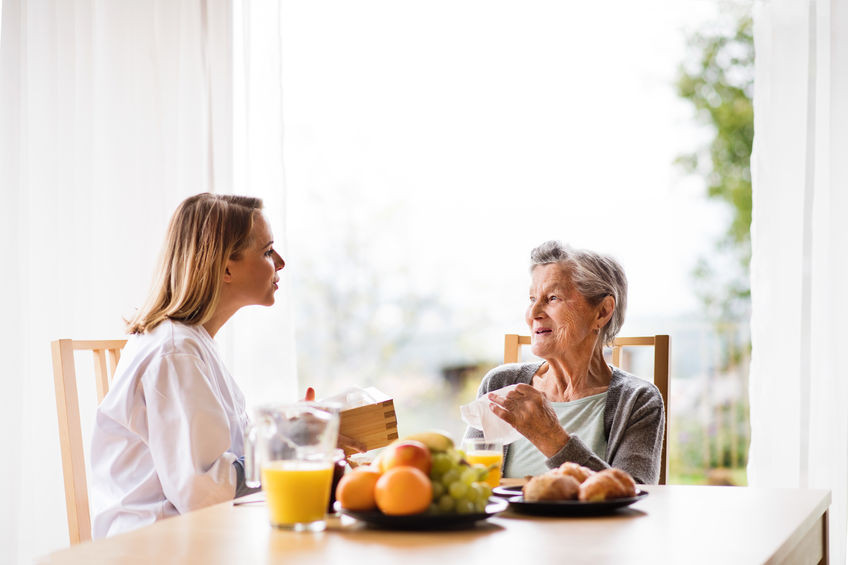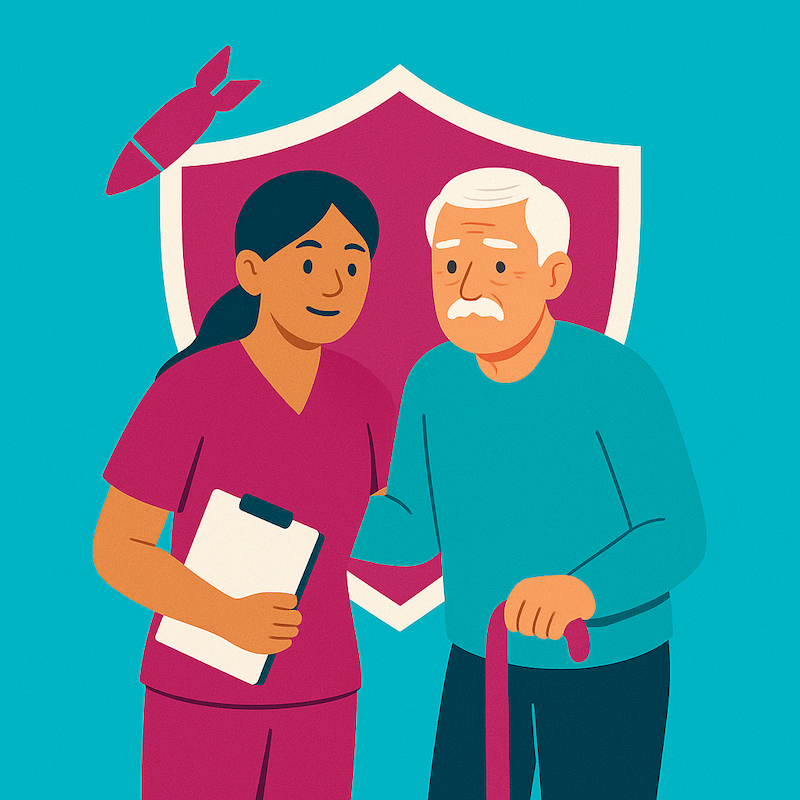Elderly Care: Lose of Appetite, 6 Ways to Improve It
צוות iSavta | 13.11.2019

One of the main struggles in taking care of the Elderly is the refusal of food and drinks. There
are so many factors that affect the appetite of an elderly person. One that a Caregiver needs to
rule out is the health condition of the patient as well as the physical capacity to actually chew
and swallow food. Medicines, dental problems and mental health are mainly the cause of their
loss of appetite.
Caregivers would also need to consider the amount of intake as some elderly patients,
especially those who are with kidney diseases are with limited amount of fluids that are
allowed every day. A fluid doesn’t mean just water, juice or soup. Fruits and vegetables have
loads of water in them. The caregiver needs to include those in restriction. Not only these, the
caregiver has to monitor the output as well to make sure that there’s minimal water retention
in the body.
These restrictions sometimes cause emotional stress to the patient. It triggers loss of appetite
as well as irritation to the elderly. It will be even difficult for the caregiver to convince the
patient to eat once they get frustrated and angry.
But there are some ways that may help the caregiver to manage the patient’s meal time and
appetite:
1. Easy to Eat Nutritious Snacks – Most elderly patients prefer to have something that they
can eat easily. Make sure you have some low fat yogurt inside the fridge. You can top
this with crushed almonds or fresh cut strawberries. Avoid giving your patient flavoured
yogurt as it’s packed with sugar. You can also give them cheese sticks, spring rolls,
crackers and peanut butters, diced fresh fruits or steamed vegetables.
2. Fresh Juice and Smoothies – You can always whip up a fresh fruit and vegetable juice for
your elderly. For example, carrot-apple juice. The elderly will most likely drink a carrot
and apple than chewing them. You can also make milkshakes and smoothies made of
strawberry, pineapple or peaches.
3. Avoid food that needs utensils – As mentioned, finger food, easy to eat snacks are
better than giving your elderly steaks or something that require them to slice or scoop.
Most elderly people have problems with balance and shaking. Yes, you can feed them
but most are not comfortable with it.
4. Create a Meal Schedule – In scheduling your patient’s meal, you have to observe his/her
eating patterns. It is advisable to give your patient small frequent meals than having
him/her eat 3 big meals 3x a day. It is difficult to convince an elderly to eat when he or
she is actually hungry but, it is more challenging to convince them to eat if they still feel
full.
5. Calories are important – It is dangerous for an elderly person to lose weight
dramatically. Unless your patient has restrictions because of medical condition, it is
important to feed them with loads of calories as well. Rice, bread and meat are packed
with calories. These are not unhealthy food if taken in moderation. In fact, it can give
your patient the energy they need.
6. Be Creative – the only person who knows your patient well is you. Keep track of his/her
eating patterns. Note down the food that they like and how or when they want it.
Experiment more in preparing their food. You’ll be able to find the best combination of
meals and schedule to make your patient eat more.
Please also note that a professional help from a nutritionist is essential for elderly patients. We
have to make sure that they have enough vitamins and minerals needed for them to live longer
and healthier.











